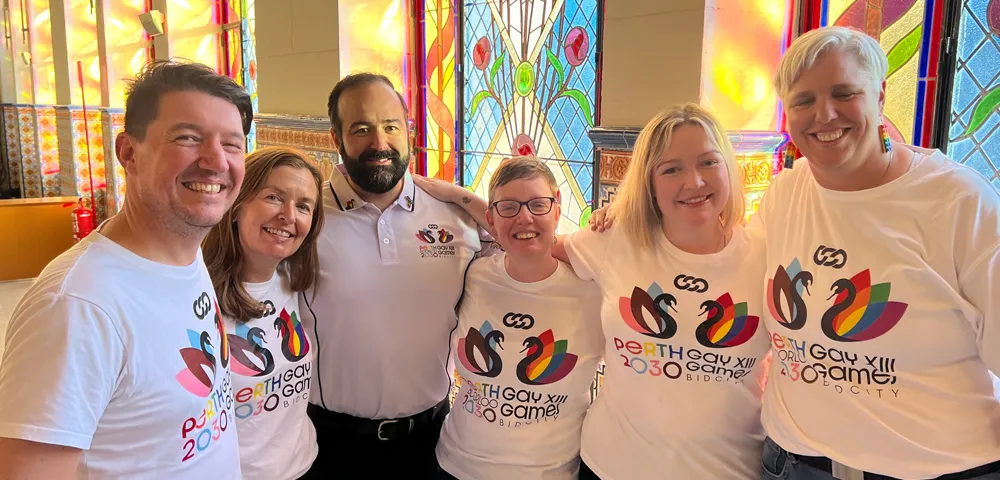Gay Games 2030 to be hosted in Australia
The world's queer sportspeople will be heading to Perth.

The Western Australian city of Perth has been announced as the successful city in the bid to host the 2030 Gay Games.
A shortlist of 10 cities were in the running, but Perth was selected by the voting delegates, with Denver the runner-up bid.
The 2026 Gay Games will be hosted in Valencia, Spain.
What’s life like for LGBTQ people who live in Australia?
What’s life like for LGBTQ people who live in Australia? Let's take a look at some of the key equality indicators.
Is it legal to be gay?
Yes. The United Kingdom invaded the continent we now know as Australia in 1788. The colonies that they established inherited their laws from the UK – including the Buggery Act of 1533 that made sodomy a crime punishable by death.
Over time, the colonies developed into states, and a federation was created so that they could operate as one country.
Sodomy remained a crime punishable by death until 1949 (some states removed it earlier than others).
Being gay remained a crime in Australia until 1997 (although some states began the repeal process in 1975).
It is now legal to be gay in Australia.
Is there anti-discrimination legislation in place?
Yes. Comprehensive anti-discrimination legislation was implemented across all states in Australia in 2013. Prior to that, the anti-discrimination protections had been evolving (from around 1986) but had been fragmented.
Is there marriage equality?
Yes. Following a public vote in 2017, Australia has embraced marriage equality.
What’s life like for LGBTQ people who live in Australia?
While there are still isolated incidents of homophobia and anti-gay violence, Australia is a good place to be gay.
You will find gay people living openly in communities across the country (not just the larger cities), and media representation of LGBTQ characters is generally positive. There are numerous Pride celebrations held across the country.
However, LGBTQ people from Indigenous communities have poorer health outcomes and face additional barriers to living openly.
